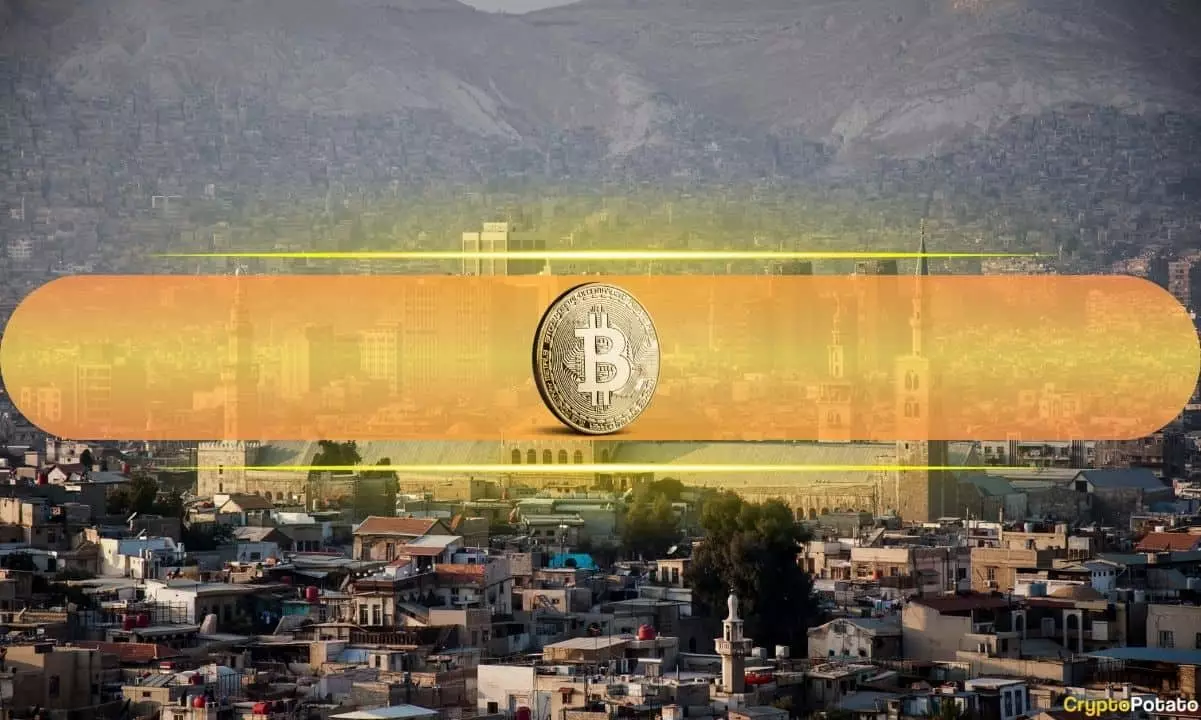Syria has been beset by economic turmoil for more than a decade, a result of prolonged conflict, an ineffective monetary policy, and crippling international sanctions. The local currency has seen staggering devaluation, leading to hyperinflation and making basic necessities inaccessible to a large segment of the population. In an attempt to navigate these turbulent waters, the Syrian Center for Economic Research (SCER) has introduced an ambitious proposal aimed at rejuvenating the nation’s economy through the legalization of Bitcoin and the digitization of the Syrian pound.
Legalizing Cryptocurrency: A Bold Proposal
The SCER’s proposal marks a significant shift in monetary policy, advocating for a regulatory framework that would facilitate the exchange, trading, and mining of Bitcoin and other digital assets. The crux of this initiative calls for the integration of a digital version of the Syrian pound, with a novel approach of minting it on a blockchain platform that is underpinned by liquid assets such as gold. Such a digitized currency could fundamentally alter the landscape of financial transactions in Syria, providing a layer of security and transparency that has been lacking in recent years.
Furthermore, the initiative aims to establish both centralized and decentralized banking systems. By encouraging the development of robust digital financial infrastructures, this proposal aspires to create an ecosystem where entrepreneurs can thrive free from the heavy-handedness of monopolistic entities. This empowerment of local businesses and innovators could serve as a catalyst for broader economic growth.
Legalizing Bitcoin not only facilitates new avenues for economic engagement but may also attract foreign investments keen on tapping into a fresh market landscape. It could enhance Syria’s connectivity to the global economy, encouraging cross-border transactions and remittances—an essential lifeline for many families in a country plagued by high unemployment and poverty rates. The advent of e-commerce is another potential benefit; with digital payments facilitating trade, Syrian entrepreneurs could easily reach a global audience, thereby expanding their market reach.
Moreover, the transition towards a digital economy could promote private property rights and foster an environment where individuals can securely hold and manage their digital assets. Such developments could contribute to the rebuilding of trust in financial systems, which has eroded due to years of mismanagement and instability.
However, the SCER’s proposal is not without its challenges. The current technological infrastructure in Syria is underdeveloped, and there exists a significant gap in public awareness regarding cryptocurrency and blockchain technology. These hurdles are compounded by ongoing geopolitical tensions that continue to affect Syria’s stability and, consequently, its economic recovery.
Moreover, although the transitional government has not yet approved the SCER proposal, the initiative itself underscores a need for innovative thinking in governance. There remains an explicit recognition that tackling more immediate issues takes precedence over digital advancements at this time. The SCER’s candid acknowledgment of these hurdles reveals a realistic approach to the vision they propose.
The context of international sanctions adds another layer of complexity. The newly appointed Foreign Minister, Asaad Hassan al-Shibani, has vocalized the imperative of lifting sanctions, which were initially aimed at punishing the regime for its brutal crackdowns. He argues that these sanctions are now counterproductive, hindering ordinary citizens more than the regime itself, suggesting a dire need for a change in international policy.
Al-Shibani’s stance reflects the reality that any economic revival must proceed hand-in-hand with political reforms and broader acceptance on the international stage. In the face of potential resistance from global stakeholders, the proposal from the SCER might represent a symbolic yet necessary step towards reforming Syria’s battered economic structure.
The introduction of a digital economic framework in Syria, spearheaded by proposals such as those from the SCER, could pave the way for a renaissance that empowers local communities and engages a diaspora yearning to contribute to a nation on the brink of recovery. By addressing fundamental monetary issues through innovative technology, Syria might find itself on a path to stability, economic growth, and enhanced connectivity in a globalized world. However, the success of such initiatives ultimately hinges not only on technological advancements but also on an aligned political landscape and the lifting of debilitating sanctions that obstruct genuine progress.

